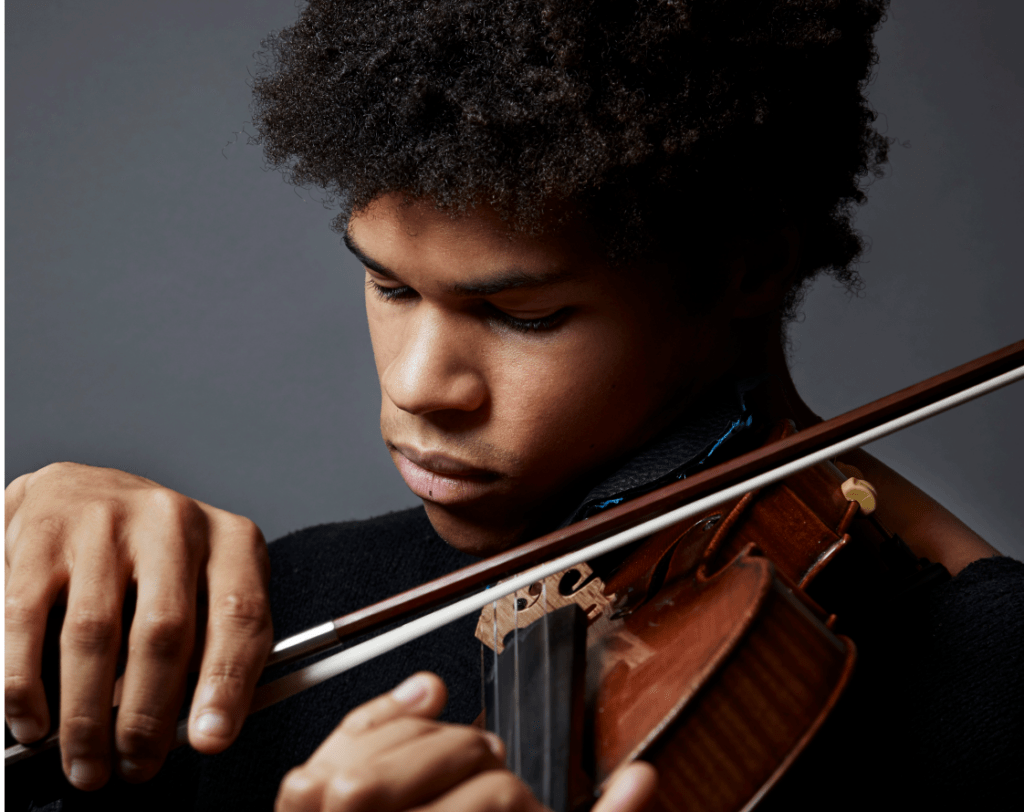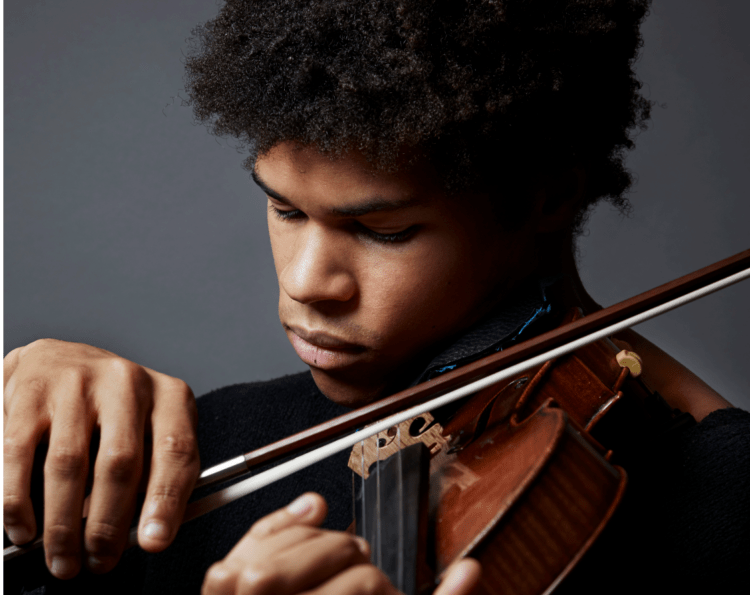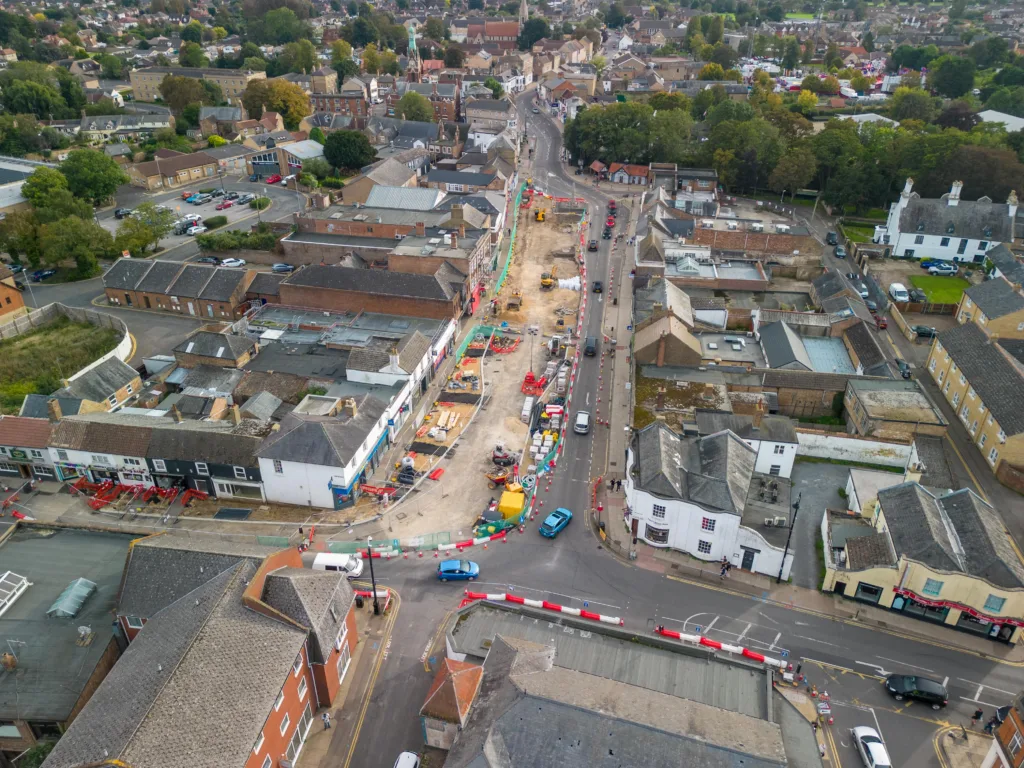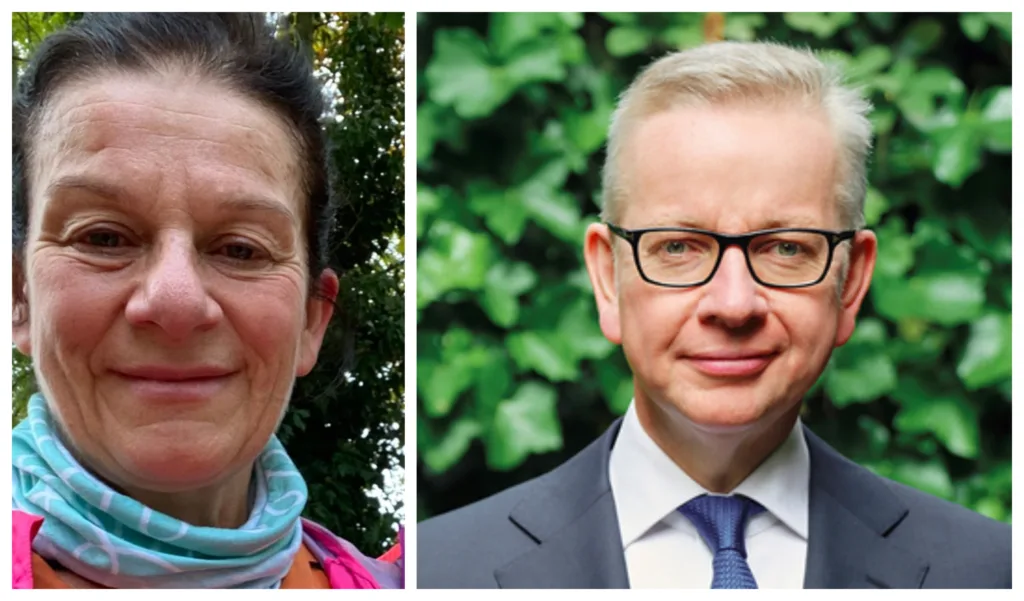Braimah Kanneh-Mason, Plinio Fernandes and Hadewych van Gent at Cambridge Junction. A violinist, a guitarist and a cellist walked through a bar… onto the stage. There isn’t a clever punchline, but there was the most blissful concert.
Chamber music, as Braimah Kanneh-Mason said, was written to be played in small places. Cambridge Junction, the second venue on a short tour, was a small space, packed full of an ecstatic audience. The atmosphere was magical.
Waves of warmth and happiness came from the stage and embraced us all. It was all sheer joy. The virtuosity was astonishing. I don’t know why the piece, Ajde Jano made me cry – was it the beauty of it or because it seemed to hold so much history.
This traditional Serbian wedding song had Kanneh-Mason’s violin telling such a human story. There was so much history in that piece.
These three outstanding musicians met at the Royal Academy of Music. Kanneh-Mason is a violinist from a musical family of seven gifted children from Nottingham. Classical guitarist Plinio Fernandes is from Brazil and cellist Hadewych van Gent is Dutch. They play music across the genres and across time. They play with perfect symmetry. It’s flawless, it’s perfection.

The programme, with pieces arranged by them, some transcribed for their instruments, provided a clever balance. The opening piece was a Bach sonata, the final pieces were by the Italian composer Niccolo Paganini. “He played violin and guitar,” said Kanneh-Mason. “But the audience threw tomatoes at him when he played the guitar, so he was forced to play the violin.”
The centre piece, written by Hungarian composer Zoltan Kodaly for violin and cello, was introduced by Kanneh-Mason who said he had wanted to play it for a long time, and even more after spending time in Hungary.
The performance by Kanneh-Mason and van Gent explored the full dynamic range of each instrument. There were islands of tonality between the two, sometimes in harmony, sometimes in contrast. They broke apart and came back together.

Either side of the centre piece were folk songs, flamboyant pieces and wistful melodies. These included music by Manuel de Falla, the Spanish composer and pianist, and a modern piece by a young Brazilian composer, which the trio had premiered last summer in Brazil.
Hadewych van Gent introduced a piece by Dutch cellist and composer Ernst Reijseger, saying it was on the border between classical music and jazz. “Well on some kind of border.”
At the start of one piece, they stopped playing after a couple of notes so they could start again after Fernandes had adjusted his guitar. He explained that guitars were temperamental instruments, they would go out of tune if the atmosphere was humid. “They say in Brazil that guitarists spend half their time tuning their instruments and the other half playing out of tune.”
It was a privilege to be there – to be uplifted by such virtuosity. To hear pieces so beautiful played with such precision, love and soul – with such fine understanding of the music that every note spoke to the audience.
The concert, promoted by Through the Noise, will be at The Bullingdon Club in Oxford on Wednesday, February 5; at the venue 299 (Great Portland Street) London on Friday, February 7; at Norwich Arts Centre on Sunday, February 9 and at the Cheltenham Music Festival in July.






















